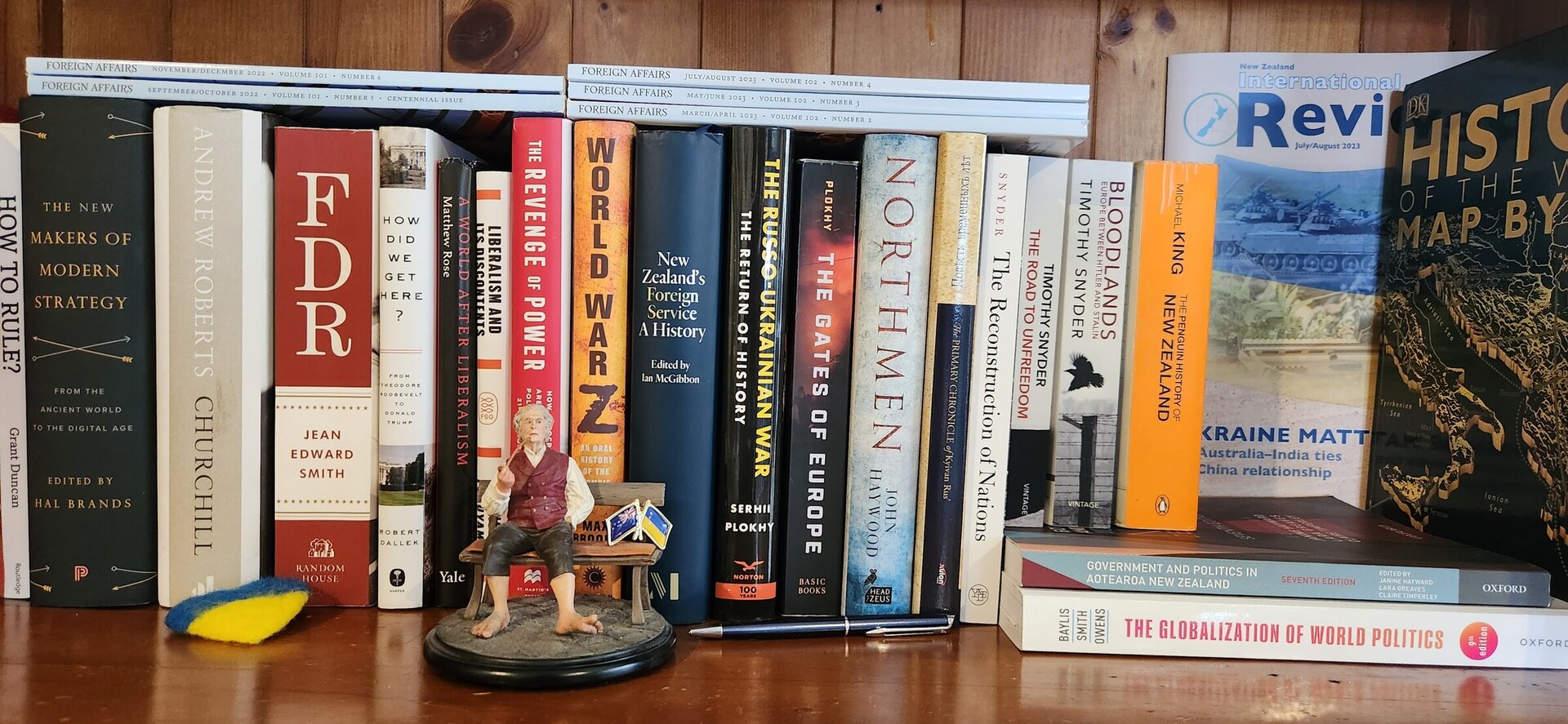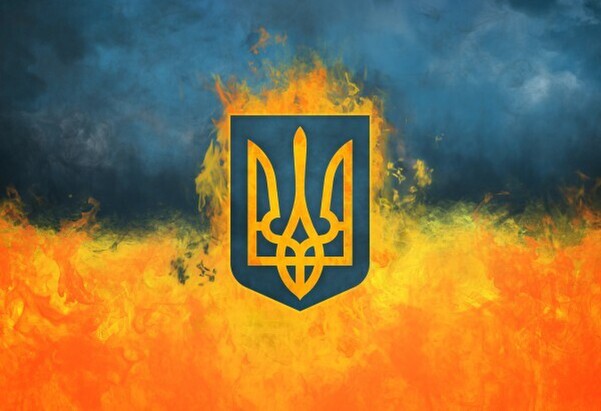A miracle that happens every day,
Or the worst anniversary piece one could ask to write.
Article by Veronika Orekhivska
This article first appeared on the Craccum, published by the University of Auckland
It’s been a year since the rotten russian empire made a brutal attempt to turn history back by openly invading Ukraine. Exactly one year ago, numb but also shaken to my core, I was agonisingly writing a big piece about the first few days of the invasion, hoping that Craccum would publish it without a warning or planning. The good news—they did, and I am technically a published author now. But the bad news is that I’m back, crushed, and angrier than I thought I’d ever be.
In one day, Ukrainians were thrown back a century—into fire and destruction, into the need to ensure a future, regardless of explosions and deaths. When you think “war”, a few pictures come to mind. Like soldiers in uniforms, destroyed buildings, missiles and tanks, everything that we’re used to seeing in the movies about war. Ukrainians prepared themselves too, expecting they would also see these typical war scenes in their country. After the first shock came questions, how in the 21st century could one country openly and without warning attack another country? We were ready for our soldiers to fight and die on the battlefields, but we weren’t prepared for civilians to be brutally murdered on the occupied streets. We were expecting that some soldiers would be taken as prisoners, but we did not expect that russian soldiers would build torture complexes and torture everyone: civilians, women, and children. I wasn’t ready to see our doctors cry when they saw raped children of all ages brought from the liberated territories.
Ukraine and its partners are investigating russian crimes in three main areas: the crime of aggression, the crime of genocide, and war crimes. War crimes are something I still can’t wrap my head around. They steal everything they see. In addition to caricature enrichment with toilets (some of the soldiers have never seen ceramic toilets), they steal our children and take them to russia by force; they steal metallurgical plants and national treasures from museums. The decimation of the civilian population and total destruction of national infrastructure is a deliberate strategy of the russian federation. They leave ashes when they fall back, so the cities cannot resume existence in the near future. In other words, it is salting the earth of the 21st century.
You would think that in a time of great need, people would overlook bureaucracy and will throw themselves to help. And ordinary people did: volunteers collected a record amount of money, made an infinite number of reposts and gathered for dozens of protests all over the world. But the people who have the most influence on politics were not so decisive in their actions. Apparently, civilisation hangs in such a delicate balance that help from one country to another must be done with surgical precision, lest it bring war to everyone on earth. We are now heavily dependent on Western weapons. One would say “critically”, but in the early days, this was not the case either: hand made anti-tank and anti-aircraft weapons were considered the weapons of victory. Prolonging the war benefits putin. He is waiting for the West to either get tired of helping Ukraine, or for political forces to come to power in the United States that will significantly reduce aid to Ukrainians or refuse to provide it. If they can do this with Ukraine, then why stop here? If that happens, God help us all.
For me, the scariest part about this war is that people in Ukraine continue to live a normal life. As normal as it can be. A third of Ukrainians who had a job before the war are currently unemployed. Railway traffic in the territory of hostilities has been stopped, and air traffic has been stopped as well. But many businesses have resumed work after the start of the war, and the government supports this. Some have received state defence orders and now work in three shifts only for victory. Ukrainian clothing and footwear brands are resuming production, many of which not only sell their products but also transfer funds from their sales to the Armed Forces. After the retreat of the occupiers, more than 900 businesses selling food products resumed their work in Kyiv. My friends are talking about finding new jobs, returning to previous jobs, complaining about exams weeks, complaining about essay deadlines, complaining about new crushes, discussing new HBO shows, discussing new video games—all that while experiencing power shortages, water shortages, food shortages and air raids alerts. Air raids alerts have become something that prevents you from getting to a date on time, like a traffic jam. Even so during every air raid alert, your heart aches for friends and family, so they will stay alive, but not for you because you came to terms with death a long time ago.
Over the last year, Ukraine has become famous. People know where it’s located and what our flag looks like. Some people can even recognize our president when they see his picture. That’s a big noticeable change I see here in New Zealand. Before the war, whenever I introduced myself, I could see the person to whom I was talking get uncomfortable. They wouldn’t know where my country is, or they wouldn’t have a follow-up question. And then I would get uncomfortable too because they don’t have to know where my country is. I don’t know about every country in the world either, and I’m happy to tell you more about mine. But now, every time I introduce myself, I hear a sympathetic sigh, and one or two suggestions about what Ukraine, the USA, and the European Union should do next. I would give everything so that no one knew Ukraine like in the old days.
I went to an Auckland Museum to see an exhibition dedicated to the war in Ukraine. A section called “warning: too harsh” was hidden behind a curtain, and I recognized every picture there. It is the burden that every Ukrainian has been carrying for a year. We can tell the difference between dead bodies in Bucha and dead bodies in Mariupol. From now on, every next day is the anniversary of a death.
A year ago, I wrote about how it all started. A year later, I’m writing about how it’s still going. I hate it here. I rescheduled publishing this piece twice and cried a few times while writing it. If it were my will, I would just print a scream on two pages, and Ukrainians would understand me. But you need stories in order to be able to sympathise. That’s why I’m writing this while Ukrainians keep screaming.
I hope you won’t read another war piece from me ever again.
May the sky above your head will always be peaceful.
Image source: oboitut


